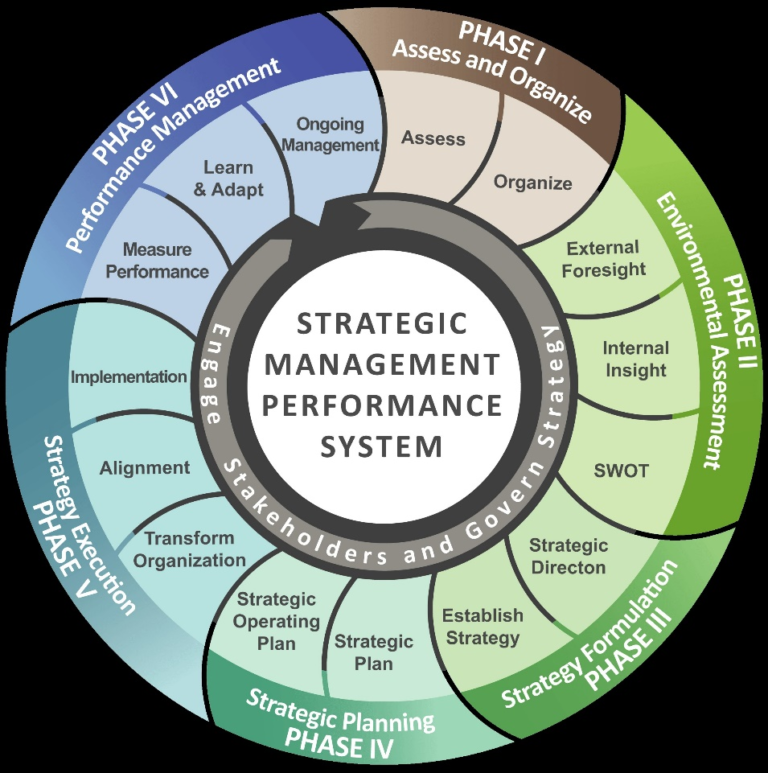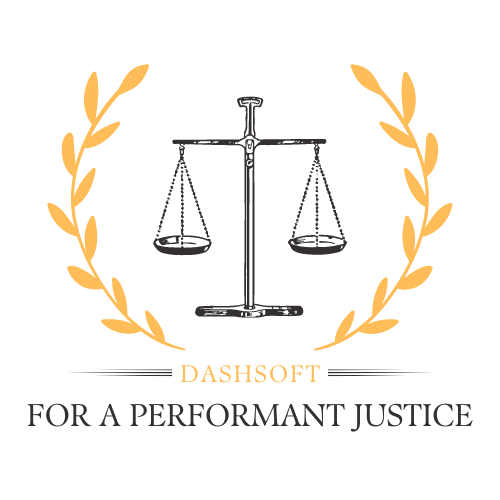Consulting Services
Judicial Dashboard
What is a Dashboard ?
A dashboard is a visual representation of data in the form of tables, charts, graphs, diagrams, maps, color-coded scales, and more. This visual representation serves as a management tool that aims to track, analyze, and display data on the performance levels of judicial organizations, centralizing this information in a single location (a “one-stop shop”). In other words, data dashboards are tools for understanding, managing, and improving the performance of judicial organizations by focusing on the relevant performance indicators.
What is a performance indicators ?
Performance indicators are data items representing the results of performance measurements, typically expressed as numerical figures and units of measurement.
How important are dashboards ?
Based on performance indicators, Judicial Dashboards help courts measure the performance and efficiency of their judicial work. These dashboards support the decision-making process by revealing failures in judicial processes and identifying justifications for their causes. They focus on the following aspects:
- Case processing workflow;
- Judicial time management;
- Pending case backlog;
- Productivity of judges/judicial panels;
- Performance objectives;
- Sectoral policies and strategies linked to the judicial system.
Today, it is essential for judicial systems to place data at the center of their development strategy. In the age of digitalization, data analysis is becoming a significant growth lever for quality and performance. This is why Dashsoft Engineering favors the use of Artificial Intelligence (AI) technologies in the implementation of reporting systems. Through AI, we can deploy dashboards across various levels of judicial administration, enabling the creation of a data-driven judicial system. By doing so, the judicial system can improve its management practices and governance processes while enhancing overall performance.
This approach is the cornerstone of Dashsoft’s philosophy, taking a realistic approach to implementation. The key to all this is Artificial Intelligence.
Courts Management
The establishment of a state founded on institutions that uphold the rule of law requires strengthening the judicial system’s institutional and organizational framework to ensure its efficiency.
The establishment of a solid, effective, and efficient judicial system can be hindered by various inefficiencies arising from an inadequate legal framework, an inappropriate court network, increasing case complexity, and insufficient court resources. Consequently, the accumulation of pending cases over time leads to delays in court proceedings, creating a backlog and potentially violating the reasonable time requirement. Additionally, these delays increase the cost of court proceedings, contribute to legal uncertainty, and negatively impact public perception and trust in the judicial system.
Dashsoft Engineering has developed several managerial approaches to meet the requirements of judicial systems, specifically to improve the efficiency of case management processes. By implementing tailored strategies suited to the unique circumstances of each country, along with innovative tools and extensive expertise, Dashsoft aims to reduce the backlog of old cases. This involves identifying areas where backlogs accumulate, understanding the underlying causes, and proposing measures to address these backlogs across various levels of the court system.
In this context, it is essential to remember that any strategic decision or adjustment of managerial methods should be based on reliable statistical and qualitative data, addressing the identified problems and causes behind case backlogs. This is why Dashsoft Engineering has developed deep expertise in using Artificial Intelligence (AI) for analyzing judicial data. Additionally, Dashsoft has implemented many configurable, ready-to-use, and quickly deployable solutions for judicial performance analysis.
Judicial Time Management
Article 6 of the European Convention on Human Rights states that “everyone is entitled to a fair and public hearing within a reasonable time”.
However, many judicial systems continue to struggle with case backlogs, necessitating prompt action by the authorities to address the situation and ensure the delivery of justice within a reasonable timeframe.
To tackle these issues, Dashsoft offers its partners a set of solutions and measures, including:
- Establishing timeframes for different types of cases (e.g., criminal, civil, and administrative) based on data analysis, benchmarking, and the Delphi method.
- Integrating judicial time management indicators into court dashboards at both tactical and operational levels, and providing central institutions with strategic reports. These reports enable the monitoring and diagnosis of court performance in processing cases within reasonable deadlines, utilizing Artificial Intelligence (AI) and Business Intelligence (BI) technologies.
- Introducing automatic deadline reminders at critical points in the case management workflow.
- Labeling old pending cases or identifying them with special covers to provide a clear overview at the court or judge level. For instance, using red-colored covers for physical case files and special marks in the case management system to trigger warnings when cases approach a certain age.
Strategy Consulting
Reforming a judicial system requires significant, transformative steps aimed at promoting its effectiveness and efficiency. Strengthening judicial power is essential for consolidating the rule of law and democratic institutions.
Dashsoft Engineering has the breadth of perspectives and depth of experience to provide strategic advice, helping judicial institutions achieve optimal and sustainable results. We create a customized approach tailored to each country’s unique situation and employ tested analytical techniques to ensure success.
Our strategic consulting involves assisting our partners in adopting an informed approach based on data analysis and innovative tools to establish a roadmap for driving transformation strategies. This includes defining SMART strategic targets, ensuring their implementation on technical and operational levels, and providing tangible tools to achieve these goals (such as timeframes for different types of cases, case weighting, workload measurement, etc.). We ensure the successful execution of plans by strengthening work processes with new monitoring and control mechanisms (KPIs, dashboards, and reporting systems) and driving sustainable change.
For establishments that have already developed their strategic plans, we provide measurement tools to monitor the implementation of their strategies, track target fulfillment, and evaluate results and achievements. Our participation may also include identifying shortcomings and challenges, extracting lessons learned, highlighting good practices, and making necessary adjustments to achieve desired results.
Statistical data and indicators are indispensable for this monitoring, as they provide insights into progress and serve as the basis for adjustments to the action plan. In this context, Dashsoft Engineering holds a leading position in using Machine Learning and other AI tools for the analysis of judicial data.

Digital Transformation
However, it is essential to ensure that the tools chosen by States and courts are the most appropriate and compatible with the requirements of quality, effectiveness and efficiency of justice.
The objective of Dashsoft Engineering is to introduce a set of digital solutions that positively impact the timely processing of cases, enhance court proceedings’ efficiency, and reduce costs. This is why Dashsoft Engineering provides its partners with expertise in all aspects of implementing a digital-based transformation approach, particularly in the following areas:
- Designing information systems
- Reengineering judicial processes to maximize the benefits of technology
- Defining and prioritizing programs and project portfolios
- Selecting technologies and incorporating AI into developed solutions
- Managing big data technologies (Data Warehousing, Data Mart, Data Lake, etc.)
- Utilizing decision-making support technologies (Business Intelligence, reporting systems, data visualization tools, etc.)
- Driving the transformation process
By focusing on these areas, Dashsoft Engineering ensures a comprehensive approach to digital transformation in judicial institutions.
In addition to this, we have observed in several countries that aspects related to the implementation of decision-making support technologies have been overlooked, and that digitalization projects have been developed without a comprehensive data governance policy.
Such an approach risks failing to provide the information necessary to support the decision-making process. Dashsoft Engineering, leveraging the experience of its consultants, adopts a data-oriented perspective where managerial needs are considered from the very beginning of projects, particularly when defining use cases.
Furthermore, we provide our partners with expertise in enhancing traditional IT systems by adding functionalities built on Artificial Intelligence, enabling these systems to become more intelligent and efficient.
